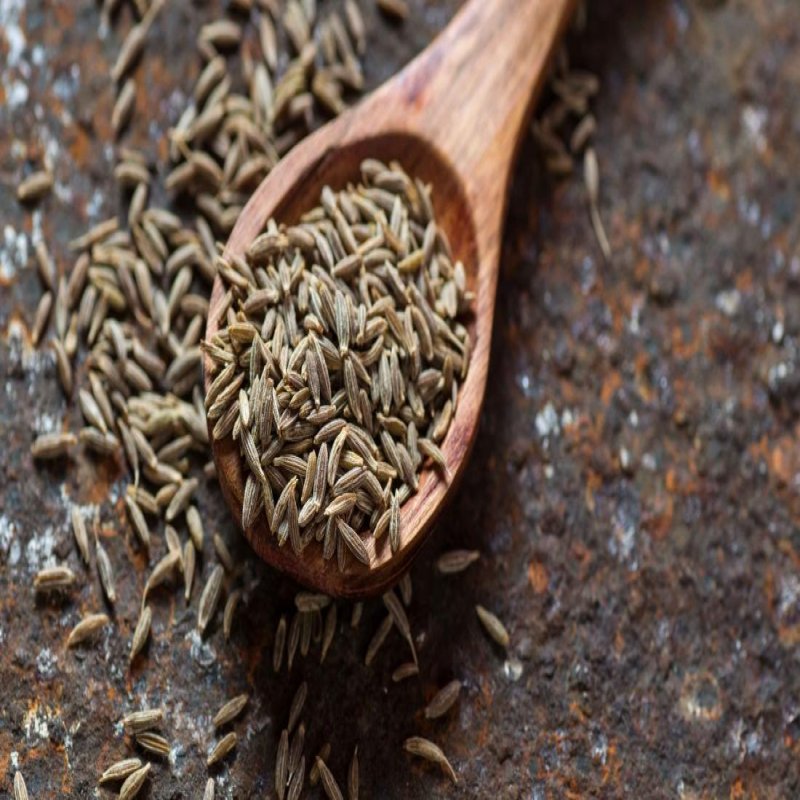
Cumin seeds look rather unassuming, but their nutty, peppery flavor provides a delightful taste to a variety of dishes. Cumin seeds are extensively used in Indian, Middle Eastern, and Persian cuisines. It is an aromatic spice that is famous for its culinary use, but it also offers several health benefits.
Read on to learn more about the health benefits of cumin!
Cumin seeds are native to the Middle East. Cumin was extensively used in ancient Roman cuisine. In India, it has been used for centuries as a traditional ingredient in innumerable recipes and forms the basis of many spice blends. Cumin was introduced to America by the Spanish and Portuguese colonists. There are different types of cumin, but black and green cumin are the most popular. Today, it is mostly cultivated in the Indian subcontinent, Northern Africa, Mexico, Chile, and China. It is known as “jeera” in Hindi.
– India is the largest producer of cumin in the world.
– Cumin is the second most popular spice in the world today.
– Jeera water, made of ground cumin is a popular beverage (especially during the summer) in the southern parts of India.
– In the ancient Egyptian civilization, cumin was used as a spice and as a preservative in mummification.
The health benefits of cumin include improving digestion, boosting immunity, treating skin disorders, and reducing insomnia. It also helps in treating anemia, boils, cancer, and respiratory disorders such as asthma and bronchitis. Cumin is also beneficial in treating piles, boils, insect bites, and painful stings.
Cumin serves as a reservoir of vitamin A, vitamin C, vitamin E, and the B vitamins thiamine, riboflavin, and niacin. It is a good source of energy and contains various minerals like iron, manganese, copper, calcium, magnesium, phosphorus, and potassium. Cumin also contains protein, amino acids, carbohydrates, dietary fiber, and a reasonable amount of fats and fatty acids.
/cumin-2500-56a20f715f9b58b7d0c623f6.jpg)
Health Benefits of Cumin Seeds
Let us look deeper into the health benefits of cumin seeds.
Cumin for Preventing Cancer
Thymoquinone, a bioactive constituent of the black seeds of Nigella sativa or black cumin, is known to possess antineoplastic activity (which prevents or inhibits the development of a tumor) against various types of tumors. According to a review published in the Nutrients journal (2016), black cumin reduces cancer cell proliferation by inducing apoptosis in people suffering from cancer of the lungs, liver, colorectum, cervix, and breast.

Cumin for Boosting Immunity
The abundance of iron, essential oils, vitamin C, and vitamin A in cumin boosts our immune system in a number of ways. Vitamin C is one of the most powerful antioxidants that fight the detrimental effects of free radicals, which are dangerous byproducts of cellular metabolism. Vitamin C also stimulates the function and activity of White Blood Cells (WBC). WBCs are the cells of the immune system that protect the body against both infectious diseases and foreign invaders.

Cumin for Digestion
The very aroma of cumin aldehyde (the main component of essential oils of cumin) activates the salivary glands in our mouth, facilitating the primary digestion of food. Thymol, another compound present in cumin, stimulates the glands that secrete acid, bile, and enzymes responsible for the complete digestion of food in the stomach and intestines. Cumin also improves overall digestion by improving appetite.
Cumin for Skin Care
Vitamin E found in cumin maintains skin health and prevents premature aging. It also keeps the skin young and glowing. Additionally, the essential oils present in cumin have anti-fungal and anti-bacterial properties that further enhance skin health. Cumin acts as an antioxidant that combats free radicals, which in turn reduce the visible signs of aging like wrinkles and age spots.

Cumin for Hair Care
Our hair is composed of many nutrients, such as proteins, fats, water, and carbohydrates. These nutrients are required for the proper growth and maintenance of our hair. Black cumin contains more than 100 nutrients and vitamins that can replenish your hair. Black cumin is also known to combat thinning of hair, baldness, and falling of hair. Oil extract from cumin is often used in aromatherapy and scalp treatments to get rid of dandruff.

Click here to learn about 8 foods for healthy hair!
How to Use It?
For its distinctive flavor and fragrance, cumin seeds, ground cumin, and cumin oil are used in various ways. Some of them are:
- Cumin is traditionally used as a spice; either as whole seeds or in powdered form. It is a major component in the preparation of many Indian dals and curries, stews, soups, and other preparations. It is also used to add flavor to alcoholic beverages and desserts.
- Cumin seeds are used to produce medicines that help in treating problems like diarrhea, colic, inflammatory, bowel and muscle spasms, and gas.
- Ground cumin mixed with honey and pepper acts as a natural aphrodisiac.
- Boil some cumin seeds in water and then allow it to cool. Drink it early in the morning on an empty stomach to get rid of acidity, bloating, and indigestion.

Conclusion
Well, with all of these benefits, how could you say no to cumin? The rich and distinct flavor of cumin, along with its health-promoting benefits, makes it a must-have in every kitchen. The exotic aroma of cumin won’t just appease your olfactory sensations but also enrich your daily diet.
- Nutritional Information
100 grams of cumin seeds provide 375 calories. Carbs: 44g (dietary fiber: 11g, sugar: 2.3g), Protein: 18g, Fat: 22g, Sodium: 168mg - And a percentage daily value of vitamin A: 25%, vitamin C: 13%, iron: 369%, and calcium: 93% (based on a 2000-calorie diet).



.png)


